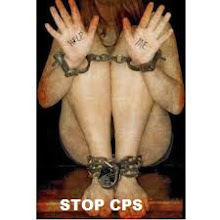 KATHLEEN GOES TO JAIL AGAIN - Arrested for taking a bath:
KATHLEEN GOES TO JAIL AGAIN - Arrested for taking a bath:
Today I was arrested AGAIN for 'Obstruction of Justice'! The officer busted down my door and hauled me off to jail while I was still in my pajamas and ready to take a bath. He showed up telling me I had a warrant for my arrest. Turns out I had a 'bogus' Obstruction of Justice' charge which stemmed from yet another false charge. Then charged me on a SECOND Obstruction of Justice today just because I wanted to take a bubble bath.
HERE'S THE STORY:
In May of 2008 I was given a false DUI by Police to stop me from being a speaker at the Family Preservation Rally in Washington DC. I had stated on my website (http://www.cpscorruption.blog
Since I wasn't going to be turned into a criminal by a 'criminal enterprise' I left the Country. While in Greece I was told by County Counsel that they had dropped the false DUI, but when I returned to America I discovered that it hadn't been dropped, and now this charge had turned into a warrant. When they came to arrest me for the false DUI I was scared. I had just gotten my daughter back after two long years, so I locked me and Jenny in the office while I tried to call an attorney. The officer forced his way in and he threw me in jail while Jenny took off running. She boarded a train to Southern California. I went to San Luis Obispo and handled the false DUI, which was eventually reduced to a 'reckless driving' (that I wasn't even guilty of), but apparently the officer filed new charges for 'Obstruction of Justice'. I had no idea that I even had this charge - until today when he came to arrest me on the warrant. Today while arresting me he issued me yet another 'Obstruction of Justice' charge because I wouldn't answer the door. I spoke to the officer through the door telling him that I wasn't dressed and he told me to open up the door anyhow. When I refused he busted the door down. I had just ran my bath water and I planned on taking a nice 'bubble bath'. This officer refused to let me get my clothes on. He handcuffed me and threw me in jail in my Pajama's. After I was booked and given another bogus charge they released me but I had no way to get home. My worker David wasn't answering the office phone, so so here I am on the side of the freeway in my pajamas thumbing because I had no money to get home. How lovely - they just love to humiliate people!!!
So now I have TWO FALSE Obstruction of Justice charges against me. They just really love me and want to keep me in America! Here's the real kicker - guess when my next court date is? July 23rd - the same day as the D.C Family Preservation Fest !!!!! This is the SECOND time they have given me false charges to stop me from attending the Rally. It's pretty obvious that they want to keep their little Organized Crime quiet. Unless you have experience the corruption first hand it's difficult to understand what they do to people. This is what they do to CPS Victims!!! I have no doubt that if I had my 8 month old the baby here with me today he would have been taken and placed into foster care. This is why I want to get out of NAZI America and the Mafia Police!
"Evil is like cancer, when we fail to swiftly remove it then the whole body is inevitably destroyed. This crippling infestation occurs individually as well as collectively as a group, a community & nation. The corruption that plagues society is a destroyer of public safety, peace & harmony, but when crime enters the arena of government, whether local, state or federal, it becomes especially diabolical & dangerous."
If were arrested without cause BILL THEM for your time! Stand up! Speak out!
NO ONE IS GOING TO MAKE THEM ACCOUNTABLE IF YOU DON’T!
Links:
Police Corruption: http://corruption.justsickshit.com/police-corruption-page/
Prepaid Legal: http://www.uspinkslip.us/Fired.htm
Kathleen Dearinger
Families Unite 4 Children's Rights Foundation

.jpg)
.jpg)
.jpg)
.jpg)














